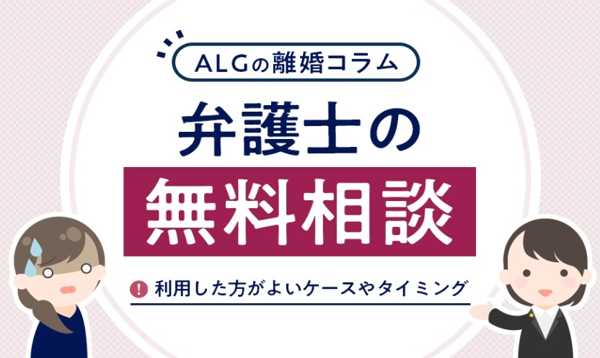医療保険の選び方と比較ポイント|見積もり・保険料・おすすめ情報
How To Recover From Parental Burnout: Signs And Steps To Feel Better
Does getting out of bed feel like climbing a mountain lately? Perhaps you've noticed yourself going through the motions of parenting without feeling the joy anymore. If you're wondering whether this exhaustion is normal or something more serious, you're in the right place. Parents across the country face similar struggles. And we are here to help you get back on track.
Does getting out of bed feel like climbing a mountain lately? Perhaps you've noticed yourself going through the motions of parenting without feeling the joy anymore. If you're wondering whether this exhaustion is normal or something more serious, you're in the right place. Parents across the country face similar struggles. And we are here to help you get back on track.
Warning Signs You Shouldn't Ignore
Burnout doesn't happen overnight. It sneaks up gradually, showing itself in various ways that might seem unrelated at first.
Identifying these warning signs can help you catch burnout early before it takes a deeper toll on your well-being. Let's look at the key areas where burnout often appears first.
Physical Red Flags

Your body often sends the first signals of burnout. That bone-deep tiredness that lingers even after a full night's sleep isn't just normal parent fatigue. When paired with constant headaches and unexplained body aches, it's your body waving a red flag.
Many burned-out parents notice their eating patterns shift dramatically. They are losing their appetite entirely or turning to comfort food more often. Your immune system might take a hit, too, leaving you catching every cold that passes through your household.
Emotional Signs

The emotional toll of burnout creeps in slowly. You might find yourself losing patience more quickly, raising your voice in situations that wouldn't normally bother you. That gut-wrenching guilt about wanting time alone may surface often.
The simple joys of watching your child learn and grow feel distant, replaced by a sense of going through the motions. Morning after morning, the thought of facing another day feels overwhelming.
Behavioral Changes
Watch for shifts in how you interact with your family. You might make excuses to skip playtime or find it hard to focus during family conversations.
You may have started staying late at work more often or lose hours scrolling through your phone. These subtle changes in behavior usually signal a deeper struggle with burnout.
Why Parents Burn Out
Modern parenting has created the perfect storm for burnout. Parents today juggle full-time work with round-the-clock childcare demands.
Society expects us to be constantly available and engaged with our children, while social media feeds show an endless stream of seemingly perfect families.
Many of us live far from extended family support, losing that crucial safety net previous generations relied on. The rising costs of raising children are another reason many parents are overwhelmed.
Simple Steps To Feel Better
Recovery from burnout isn't about making huge life changes all at once. Instead, it's about finding small, manageable steps you can take today while building stronger foundations for the future.
Think of it as gradually refilling your empty tank, one drop at a time. Here's how to start making positive changes right now and for the long term.
Quick Fixes For Rough Days

When burnout hits hard, small actions can make a big difference. Try setting a timer for five minutes of deep breathing between tasks.
You can text a supportive friend who gets it. Turn on some music and have an impromptu dance party with your kids. Permit yourself to order takeout instead of cooking after a long day.
Building Long-term Recovery
Start your recovery journey with tiny steps. This week, choose one thing to say no to – maybe it's that extra volunteer commitment or a playdate that feels overwhelming.
Carve out fifteen minutes of alone time each day, even if it means waking up slightly earlier or using your lunch break. Ask for specific help with one regular task that drains you.
Get A Support System

Your support system matters more than ever now. Consider joining a local parent group where you can share honestly about your struggles.
Set up regular childcare swaps with trusted friends to give each other breaks. Have an open conversation with your partner about what support looks like for you.
Perfect parenting isn't the goal here. Your kids don't need every meal made from scratch or Pinterest-worthy activities. Some days, screen time might help everyone survive, and that's okay.
When To Get Professional Help
Certain signs indicate it's time to reach out for professional support. If hopelessness colors most of your days or sleep evades you despite complete exhaustion, don't wait to seek help.
Pay attention if thoughts of running away become frequent or if activities that once brought you joy now feel empty. These signals deserve professional attention.
Where to Find Help

Professional support comes in many forms. Start by consulting your primary care doctor. They can assess your physical symptoms and provide referrals.
Call your local 211 service to discover parent support resources in your area. Consider online therapy platforms that work around your schedule. Parent support hotlines offer immediate help during overwhelming moments.
Take Back Your Joy in Parenting
The path to recovery starts with acknowledging where you are right now. Seeking help isn't a sign of weakness – it's a decisive step toward becoming the parent you want to be.
Small changes today create ripples that lead to bigger transformations tomorrow. You can rediscover the joy in parenting, and you don't have to do it alone.
FAQ
Q1: What's the difference between normal tiredness and burnout?
Ans: Normal tiredness improves after a good night's sleep or a restful weekend. Burnout, however, persists and deepens over time, affecting your physical health, emotions, and relationships.
Q2: Can parental burnout go away on its own?
Ans: While everyday stress might fade with time, true burnout typically requires active steps toward recovery. Without intervention, burnout often worsens and impacts both parent and child.
Q3: How long does it take to recover from parental burnout?
Ans: Most parents notice positive changes within two to three months of taking action. Recovery time varies based on support systems and the changes implemented.










